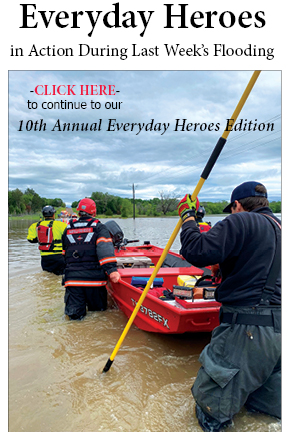The new school year is just around the corner, and businesses are getting ready for the upcoming Sales Tax Holiday Weekend on August 5-7, 2016, as set by Legislature.
As in previous years, the law exempts most clothing, footwear, school supplies and backpacks priced under $100 from sales and use taxes, which could save shoppers about $8 on every $100 they spend.
Subject to the criteria explained below, all sales of qualifying items made during the holiday period qualify for the exemption, including items sold online, or by telephone or mail. Lay-away plans can be used again this year to take advantage of the sales tax holiday.
Clothing
During these dates, retailers are not required to collect local and/or state sales tax on most footwear and clothing sold for less than $100.00 per item; and exemption certificates are not required to participate.
The exemption applies to each item eligible that sells for less than $100, regardless of how many items are purchased on the same invoice. For example, if a consumer buys two shirts for $85 each, then both shirts qualify for the exemption, even though the total purchase price exceeds $99.99.
The exemption does not apply to the first $99.99 of an eligible item that sells for more than $100. For example, if a customer purchases a pair of pants that cost $115, then the sales tax is charged for the entire $115.
The exemption also does not apply to sales of special clothing or footwear that the manufacturer primarily designed for athletic activity or protective use and that is not normally worn except when used for the athletic activity or protective use for which the manufacturer designed the article.
For example, golf cleats and football pads are primarily designed for athletic activity or protective use and are not normally worn except for those purposes; they do not qualify for the exemption. Tennis shoes, jogging suits and swimsuits, however, are commonly worn for purposes other than athletic activity and thus qualify for the exemption.
The sales tax holiday exemption does not extend to rental of clothing or footwear; nor does it apply to alteration (including embroidery) or cleaning services performed on clothes and shoes.
Accessories
Tax is due on sales of accessories, including jewelry, Replica Louis Vuitton handbags, purses, briefcases, luggage, umbrellas, wallets, watches and similar items.
However, Backpacks priced under $100 sold for use by elementary and secondary students are exempt during the sales tax holiday. A backpack is a pack with straps one wears on the back.
The exemption includes backpacks with wheels, provided they can also be worn on the back like a traditional backpack, and messenger bags.
The exemption does not include items that are reasonably defined as luggage, briefcases, athletic/duffle/gym bags, computer bags, purses or framed backpacks.
Ten or fewer backpacks can be purchased tax-free at one time without providing an exemption certificate to the seller.
School Supplies
Texas families also get a sales tax break on most school supplies priced at less than $100 purchased for use by a student in an elementary or secondary school.
Persons buying qualifying school supplies during this event do not have to provide an exemption certificate, with one exception: If the buyer is purchasing items under a business account, the buyer must supply an exemption certificate to the retailer certifying that the items are for use by an elementary or secondary school student.
“Under a business account” means the buyer is using a business credit card or check rather than a personal one; being billed under a business account maintained at the retailer; or is using a business membership at a retailer that is membership based.
Layaway and Rain Checks
A sale of a qualifying item under a layaway plan qualifies for exemption if the customer places the qualifying merchandise on layaway during the holiday or makes the final payment during the holiday.
Eligible items that customers purchase during the holiday with use of a rain check qualify for the exemption regardless of when the rain check was issued. However, issuance of a rain check by a seller during the holiday period will not qualify an eligible item for the exemption if the item is actually purchased after the holiday is over even if the rain check is presented at the time of purchase. http://comptroller.texas.gov




